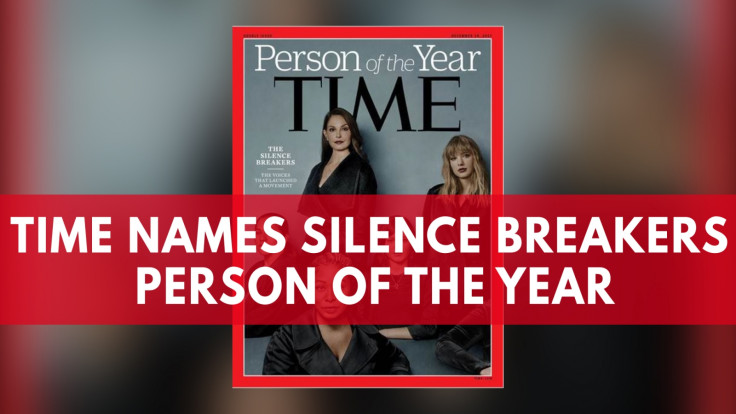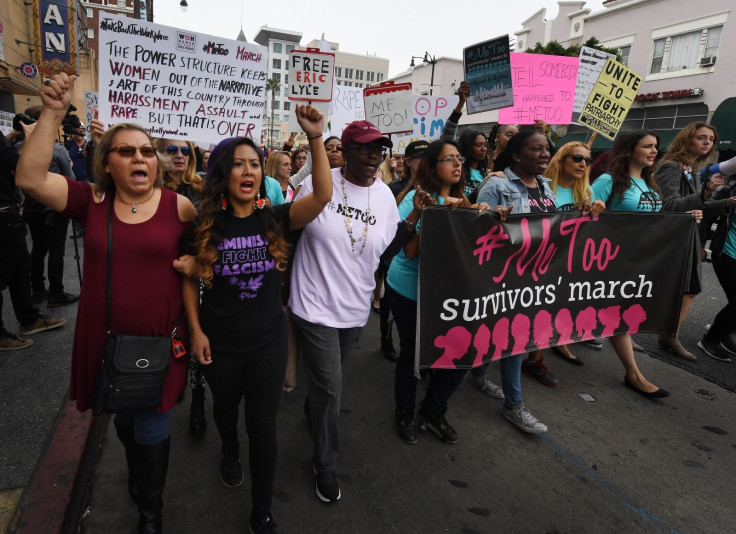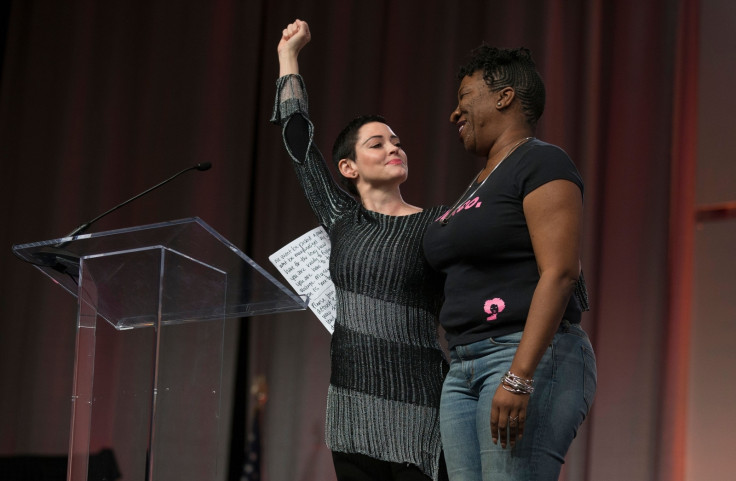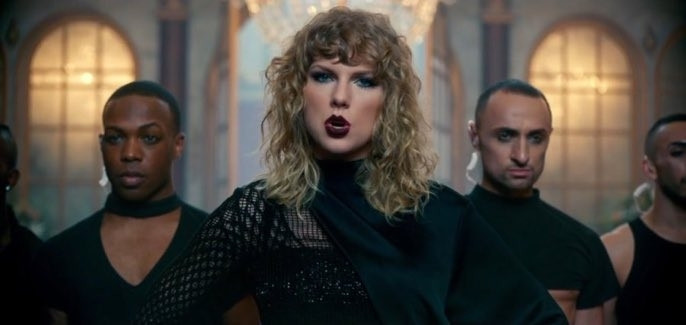People are questioning why Taylor Swift's was among Time Magazine's 'The Silence Breakers'

KEY POINTS
- The cover recognised #MeToo and those who shared their stories of assault and rape
- Taylor Swift was interviewed alongside the creator of #MeToo, the Uber whistleblower, and Rose McGowan
When Time Magazine announced their person of the year yesterday, there was a palpable reaction straight away. A year after Time magazine chose Donald Trump, a man who has gloated about sexual assault, as their person of the year, the publication payed homage to 'The Silence Breakers'.
Following a difficult, yet empowering, few months when women stood up and shared their stories of rape and assault with #MeToo, 'The Silence Breakers' was a truly apt name for a movement that challenged powerful men and a culture where sexual assault and harassment was covered up.
Time very rightly noted that this movement "doesn't have a leader, or a single, unifying tenet. The hashtag #MeToo (swiftly adapted into #BalanceTonPorc, #YoTambien, #Ana_kaman and many others), which to date has provided an umbrella of solidarity for millions of people to come forward with their stories, is part of the picture, but not all of it." As a result, instead of a person, they honoured a variety of people behind it.
"This reckoning appears to have sprung up overnight. But it has actually been simmering for years, decades, centuries" they said.

Despite this, their cover featured a small selection of the individuals who had contributed and best represented the movement this year. They were women like the actress Ashley Judd (one of the sources that uncovered the Weinstein scandal), strawberry picker Isabel Pascual (who shared the story of her stalker and abuser), former Uber engineer Susan Fowler (who spoke out about harassment within the company), Adama Iwu, a lobbyist in California (who started an open letter on harassment) and then Taylor Swift (who earlier this year took her groper to court, only asking for a dollar).
Swift's decision to take her assaulter to court for a dollar was admittedly a defining moment and written in her lawsuit it said she wanted it to "serve as an example to other women who may resist publicly reliving similar outrageous and humiliating acts" however some have questioned her place on the magazine's cover.
The Daily Beast is one example of a publication that noted Swift's personal experience with assault and injustice, but thought she shouldn't have been on it, arguing "her entire public persona is completely at odds with the notion of a 'silence breaker'."
Unlike many of the women who didn't make the cover and were only featured inside – women like Tarana Burke, the sole founder of the #MeToo movement in 2006 and a black woman – Swift isn't strictly an activist. In fact, The Daily Beast and Vox have both argued that she's only ever spoken out when there's been something to gain from it.
Whilst many activists and high-profile figures have called out Donald Trump for his views on sexual assault, and have publicly supported his alleged victims, Swift has failed to. This fits into a long history of staying silent in the face of political issues.

Taylor Swift has been adopted as an icon for neo-Nazis, something that entered entertainment news radar as early as 2016 when Broadly uncovered how a white supremacist blogger had written: "Firstly, Taylor Swift is a pure Aryan goddess, like something out of classical Greek poetry". For a long time Swift failed to respond or comment on it – something that came to a head last month.

In November 2017, a blogger for PopFront argued that the alt-right had appropriated Swift's song Look What you Made Me Do, pointing out that "many on the alt-right see the song as part of a 're-awakening,' in line with Trump's rise."
"At one point in the accompanying music video, Taylor lords over an army of models from a podium, akin to what Hitler had in Nazi Germany. The similarities are uncanny and unsettling." Through the piece, the writer alleged she had failed by not commenting on the effect of her image.
Swift threatened the blogger with legal action and it's this response – the attempted silencing of someone criticising her – that have many people angry about Swift as a 'silence breaker'.
Just this week a viral meme of Swift with the caption "name a badder bitch" led to numerous responses of bold women throughout history who challenged the status quo. The incident highlighted an overwhelming agreement that she wasn't a feminist figure for most either.

With all of this in mind it seems incredibly confusing as to why she graced the cover over her fellow interviewees in the magazine. The result is that Time have been accused of superficially placing Swift on the cover – in full knowledge of her divisive nature – to shift copies and to spark a predictable social media debate around their issue.
In addition, through failing to feature women such as Rose McGowan who was a central figure in Weinstein and #MeToo, the magazine have, in many people's eyes, misrepresented a moment in history.






















